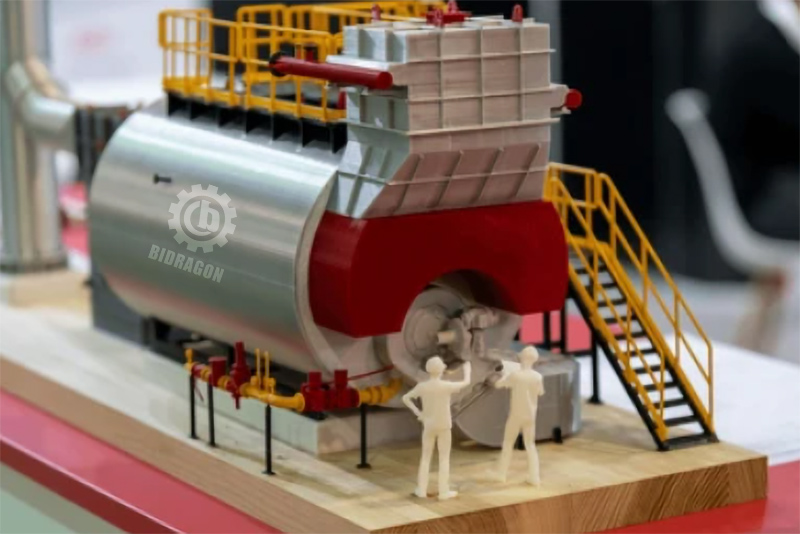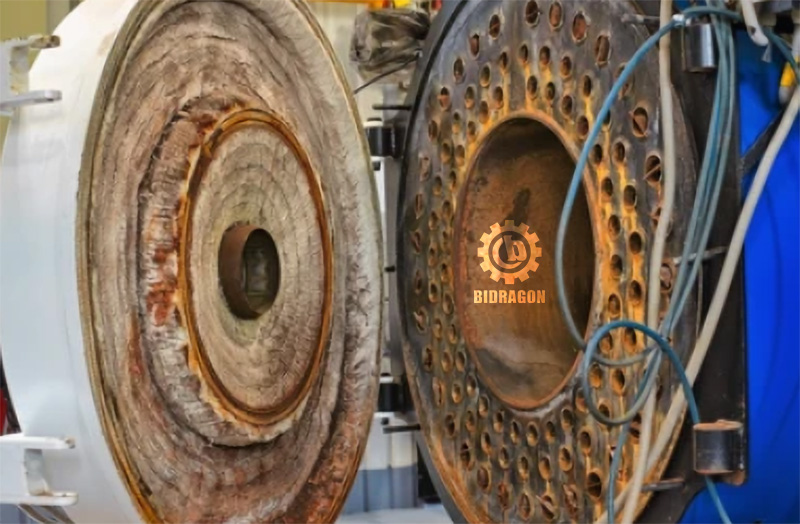In the field of industrial production, industrial boilers as the core power equipment, the correct selection of its directly related to the success or failure of business operations. The right boiler not only ensures the efficient operation of the production process, but also significantly reduces energy consumption and operating costs, while enhancing production safety and business sustainability. On the other hand, the wrong choice of boiler can lead to frequent downtime, high maintenance costs and even safety accidents. Therefore, a scientific approach to selecting the right industrial equipment is crucial to the long-term development of your organization.
Selecting the right industrial boiler is like configuring the “heart” for the production of an enterprise, and its importance is reflected in multiple dimensions. From the efficiency level, matching the production needs of the boiler can accurately output heat, avoiding energy waste; in cost control, efficient boilers can significantly reduce fuel and maintenance expenditures; in terms of safety, the compliant design of the boiler can effectively avoid the risks of explosion, leakage, etc.; and from the perspective of sustainable development, low-emission, high energy-efficiency boilers are more in line with the environmental protection policy, to help enterprises in the green transformation. Therefore, boiler selection must be included in the enterprise's strategic decision-making, laying a solid foundation for production and operation.

The first step in the selection process is to analyze the specific needs of the industrial production process. Companies need to define the required temperature, pressure, flow and other parameters, as well as the continuity and periodicity of production. For example, the food processing industry may have stringent requirements for steam temperature and cleanliness, while chemical companies are more concerned about high-pressure, high-temperature conditions. If you blindly purchase without adequate research, it is very easy to “small horse-drawn cart” or “big horse-drawn cart” situation, resulting in idle equipment or overloaded operation, resulting in a huge waste of investment.
Common types of industrial boilers have their own application scenarios: Firetube (fire tube boiler) is compact and low-cost, suitable for small factories or steam demand is not high scenarios; Watertube (water tube boiler) has a higher pressure and capacity, commonly used in large-scale power stations and heavy industry; electric boilers are clean and non-polluting, suitable for abundant power resources or environmental protection requirements of the high regions; condensing boiler Through the recovery of flue gas waste heat, can significantly improve the thermal efficiency, suitable for energy efficiency requirements of enterprises. When selecting the type, you need to combine the process requirements and budget, choose the most suitable type of boiler.
Operating Pressure and Temperature directly determines the operating capacity of the boiler. When selecting a boiler, it is important to ensure that the boiler's rated parameters are 10%-15% higher than the actual demand, in order to cope with production fluctuations. At the same time, too high a parameter will increase the cost of the equipment and safety risks, need to meet the needs of the premise of careful selection.
The choice between steam and hot water boilers depends on the production process. Steam is commonly used in food processing, textile printing and dyeing and other scenes that require rapid heating and drying; hot water boilers are suitable for heating, district heating and other areas that require high temperature stability. Enterprises need to accurately match the output type to the process characteristics.
Fuel type directly affects operating costs and environmental performance. Natural gas is the mainstream choice because it is clean and efficient, but in areas with insufficient gas sources, oil, biomass or coal boilers may be more economical. In addition, the stability of fuel supply and price fluctuations need to be taken into account to evaluate the total life cycle cost.
When determining boiler capacity, it is important to take into account the plant's peak heat demand, operating hours, and seasonal variations, and to accurately calculate it based on the maximum heat load, with a redundancy of about 20%. Too small a capacity will result in insufficient capacity to meet peak demand and affect normal operation; too large a capacity will result in wasted energy and increase unnecessary operating costs. At the same time, the flow rate needs to be matched to the piping system to ensure efficient heat transfer, avoiding heat loss or uneven distribution due to fast or slow flow rates, thus ensuring the stability and efficiency of the entire industrial production process.
Energy efficiency is the core indicator of boiler performance; higher AFUE (Annual Fuel Utilization Efficiency) and thermal efficiency means lower energy consumption. Choosing a high-efficiency boiler may be a high initial investment, but it will pay for itself in the long run through fuel cost savings.
Companies often fall into the “low price trap” and ignore the total lifecycle cost of the boiler. In addition to acquisition costs, hidden costs such as fuel consumption, regular maintenance, equipment downtime, and labor account for as much as 70-80%. For example, although the price of energy-efficient boilers is higher, the annual savings in fuel costs are enough to cover the price difference. Therefore, it is important to evaluate costs from a full-cycle perspective and select the most cost-effective solution.
Industrial boilers are special equipment and must strictly comply with the “Boiler Safety and Technical Supervision Regulations” and other regulations. When selecting the boiler, you need to pay attention to the boiler's safety design, such as multiple interlock protection, explosion-proof devices. At the same time, with the tightening of environmental protection policies, we need to focus on controlling NOx, CO₂ and other pollutant emissions, and choose boilers equipped with desulfurization and denitrification devices or low-NOx combustion technology.
The space layout of the boiler room directly affects the installation and operation and maintenance. Large water-tube boilers have a large footprint and need to reserve enough space for maintenance; modular boilers can be flexibly expanded to accommodate future capacity increases. In addition, the accessibility of the equipment should also be taken into account to facilitate routine maintenance and troubleshooting. When choosing an industrial boiler, it is also necessary to consider the height of the boiler and the adaptability of the floor loading capacity, to avoid potential safety hazards to the building structure. At the same time, the piping design of different types of industrial boilers varies greatly, and reasonable planning of piping layout can effectively reduce heat loss and improve the efficiency of energy utilization.

In industrial production, the reliability and easy maintenance of the equipment is the key to ensure continuous production, especially for industrial boilers. Choose a simple structure, standardized design of the industrial boiler, its internal components are clearly laid out, the generality of the components is strong, can significantly reduce the difficulty of routine maintenance and troubleshooting.
At the same time, in-depth understanding of the manufacturer to provide the length of maintenance intervals, spare parts supply cycle and other detailed data, to accurately assess the reliability of the boiler operation is extremely important. Long maintenance intervals mean high stability of the equipment; short spare parts supply cycle, in the event of failure, can quickly obtain replacement parts to reduce the loss of downtime.
In addition, with the development of science and technology, with remote diagnosis, intelligent warning and other advanced features of the industrial boiler is gradually popularized. Through remote diagnosis, technicians can monitor and analyze the operating status of the boiler in real time in the office, and quickly locate the failure point; intelligent early warning function can detect potential problems in advance based on the operating parameters of the equipment, and issue timely alarms, so that the staff can take countermeasures in advance, and the use of these features can significantly reduce the downtime due to failures, and strongly protect the continuity of industrial production.
Choosing a quality supplier is an important guarantee for industrial boiler selection. To focus on the technical strength of the manufacturer in the field of industrial boilers, including its advanced combustion technology, heat exchange efficiency and other core technology mastery. Industry experience should not be ignored, with many years of deep plowing industrial boiler manufacturing enterprises, often better able to cope with various types of complex working conditions. Successful cases is the strength of the visual embodiment, can refer to its industrial boiler solutions for the same type of business, giving priority to companies with ISO certification and patented technology, these companies have more advantages in product quality and technological innovation.
At the same time, need to pay close attention to the warranty period and after-sales service, industrial boiler operation in the event of failure, may affect the entire production process, timely and effective after-sales support to ensure that equipment problems can be quickly repaired to reduce downtime, to ensure that the production activities of the enterprise to run smoothly.
As Industry 4.0 continues to advance, intelligence has become an inevitable trend in boiler development. Today, by integrating advanced IoT sensors with powerful remote monitoring systems, companies can get real-time, accurate information about the operating status of their equipment, including pressure, temperature, energy consumption and other key parameters.
With this detailed data, enterprises can deeply analyze equipment operation and optimize energy efficiency management, greatly reducing energy consumption and improving operational efficiency. In addition, advanced AI algorithms can also conduct in-depth mining and analysis of equipment operation data, predict possible failures in advance, help enterprises realize preventive maintenance, effectively reduce equipment downtime, and ensure production continuity and stability. Therefore, choosing a boiler that supports intelligent upgrading will undoubtedly lay a solid foundation for the digital transformation of enterprises and give them a head start in the fierce market competition.
Industrial boiler selection is a complex systematic project. Choosing the right boiler will not only improve the productivity of the current project, but will also continue to affect the operating costs, production safety and sustainability of the enterprise for years or even decades to come. As each enterprise's process parameters, capacity targets, budget constraints are different, there is no “one-size-fits-all” selection program, companies must combine their own actual situation, a comprehensive consideration of various factors, to make customized decisions.
Before making the final decision, it is recommended that companies actively seek the advice of professional boiler engineers or experienced manufacturers to carry out a comprehensive technical assessment of the actual working conditions.
At the same time, with an eye to the future, give priority to choosing boiler systems with high energy efficiency, low emissions, and intelligent control functions, which not only responds to the requirements of environmental protection policies, but also enhances the competitiveness of enterprises. We hope that this article will serve as a practical guide for your selection process, and that you will start the technical evaluation of your boiler system as soon as possible, so as to build a solid foundation for the long-term stable operation of your enterprise.